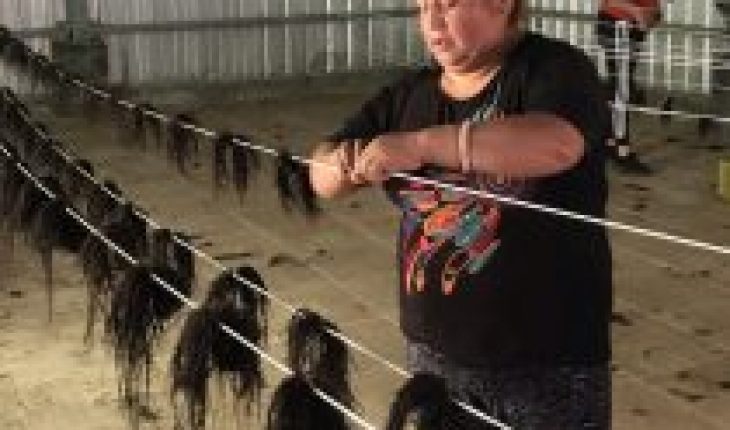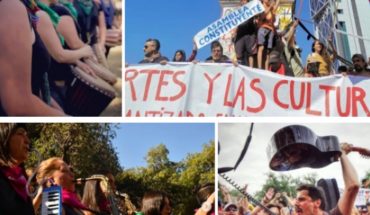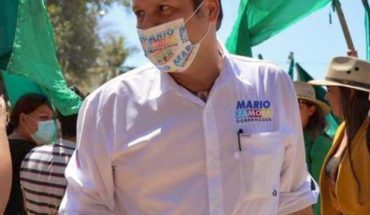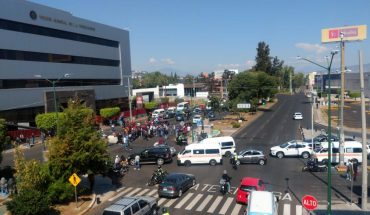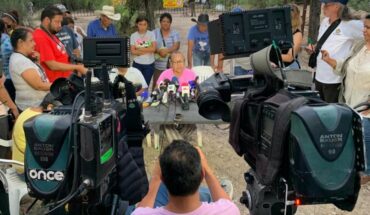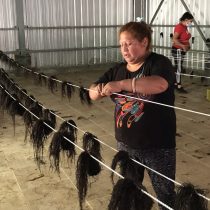
During the month of February, the first experimental crop of suspended type of Caleta Coliumo hair began to work in the Biobío Region. This, among other things, is the first experience of its kind at the regional level and means an opportunity for both anglers and farmers to adapt their daily work to the phenomena of climate change.
The Project “Strengthening chile’s fisheries and aquaculture sector adaptation capacity to climate change” is part of the Tomé Commune Environmental Action Plan, within the framework of the Environmental Certification Process (SCAM), and is supported by Subpesca and the Ministry of environment, with the support of FAO from the United Nations and the Global Environment Fund (GEF) ,
“It is of the utmost importance to face the effects of climate change, which affect us all and, by the way, it is already a reality. It has been shown in recent years that rising temperatures have led to changes in tides and ocean currents, rising sea levels and ocean acidification, affecting marine ecosystems and fisheries, altering the amount of fishing resource present on the coasts,” argued biobío’s environment seremi , Mario Delannays.
The strategy being used in the region, specifically in Caleta Coliumo, “is essential to enhance and incentivize such new experiences that will mean new benefits for the area, since they involve training and other good practice actions”.
This first experience of algae cultivation in management areas in the region participated seven women who are part of the Union of Independent Artisan Fishermen and Algae Collectors of Caleta Coliumo. Historically, this group of anglers has worked on collecting algae in natural meadows taking advantage of the low tide that occurs during the day, where chicory, luga and hair stand out, as their main algae resources, whose abundance has decreased over the years, so, increasingly, it has turned out to be scarce as a source of income for the sector.
In this regard, the zonal director of Fisheries and Aquaculture, Oscar Henríquez, highlighted the experience in experimental cultivation: “The objective is for the bonfire anglers of Caleta Coliumo to acquire new productive practices that allow them to expand their possibilities of adaptation to climate change. This initiative will allow them to learn about suspended growing systems and the production cycle of the hair seaweed. This pilot experience will collect information that will be able to project a proposal for escalation at the productive level.”
The cultivation of algae also contemplates the preparation of a practical manual of management and implementation of an experimental algae culture center, for management areas that want to replicate the experience.
Crop development
The work formed an experimental pilot center with the group of anglers and workers in the sector for the suspended cultivation of seaweed Gracilaria sp (Pelillo), the species that is presented as the main resource worked by the union members and that was selected by them to realize the experience.
“The process considered a theoretical-practical training in the manufacture of anchors for the installation of the center, the positioning of vertices, the making of anchoring capes, the making of lines for buoys, the collection of seaweed to start cultivation, the preparation of hangers with seaweed, and the installation of the planting hangers in the prepared culture system,” explains the coordinator of the initiative , Cristian Vasquez.
Once the first stage of this experimental activity, which involves the installation and planting of the center, will be monitored to the production cycle of the seaweed. This will publicize the performance of the process, and a scaling study can be projected on it.
“This experience will allow us as beneficiaries of this pilot crop, to add knowledge about the seaweed cycle and other resources that can be fixed in the growing system naturally, that can be transformed into arable species in the management area,” says fisherman Gloria Concha, one of seven women who are part of the experimental work.
From the fisheries and aquaculture sector of the Biobío Region, they project thatthis experience could give rise to a future marine farm, with all the productive and educational potential, that can incorporate aspects of tourism in the future.
Currently, the region is in the process of building regional aquaculture policy and Subpesca would be processing the small-scale aquaculture project. For this reason, the experimental crop that is being developed in the area generates an experience that serves as a transfer point for other organizations wishing to undertake in algae aquaculture.

